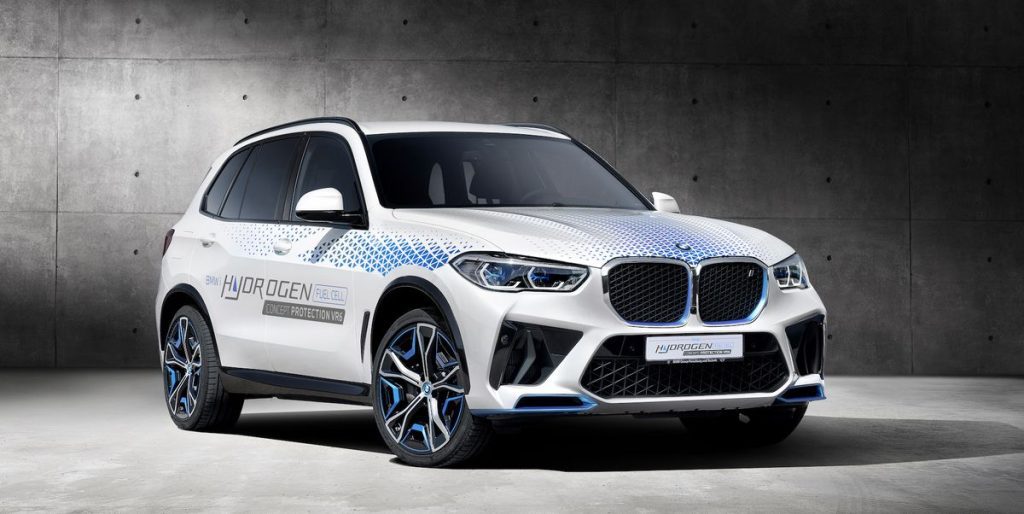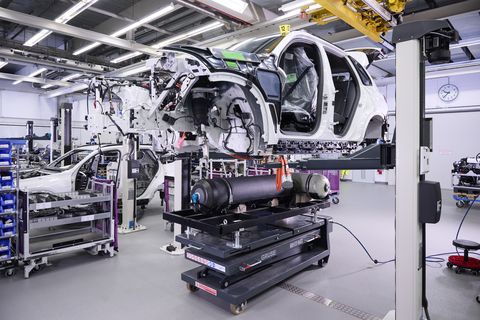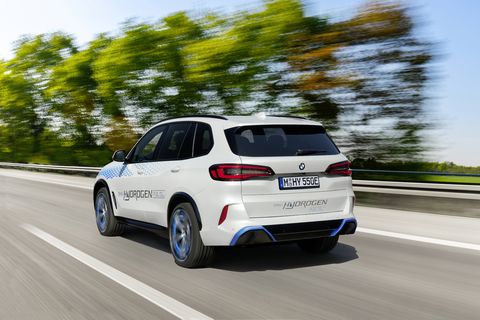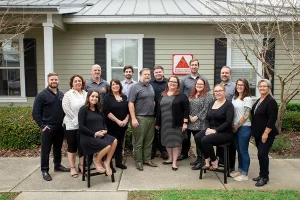BMW Expands into Hydrogen Power with Fuel-Cell SUV Based on the X5

The BMW iX5 hydrogen fuel-cell SUV is now entering low-volume production and will begin testing in select regions next spring.Based on the regular BMW X5, the iX5 is retrofitted with a fuel-cell stack, an electric motor and battery, and a new floor to fit its hydrogen tanks. BMW believes both electric and hydrogen-powered vehicles are necessary to combat climate change, with the iX5 a potential precursor to future models.
Along with a growing number of automakers, BMW says it’s committed to combatting global climate change and aims to be carbon neutral by 2050. Unlike many automakers, however, the German brand believes hydrogen fuel-cell vehicles will play a big role in reaching that goal, alongside battery-electric vehicles, of course.
Leading the charge is the hydrogen-powered BMW iX5 SUV that has just begun low-volume production. It was first previewed a few years ago by the i Hydrogen Next concept that appeared at the 2019 Frankfurt auto show. Starting sometime next spring (2023), the small batch of iX5s that BMW is now building will hit the streets in select regions around the world for testing purposes.
BMW
Based on the regular BMW X5, which is built in the company’s factory in Spartansburg, South Carolina, the iX5 is assembled at BMW’s Research and Innovation Center in Munich, Germany. The transformation from X5 to iX5 includes swapping in an entirely new floor to fit the fuel-cell system’s two hydrogen tanks that are located under the mid-size SUV’s central tunnel and rear seats. The tanks have a total capacity of about 16 pounds and feed an underhood fuel-cell stack paired with a rear-mounted electric motor and battery.

BMW
BMW says the iX5’s entire fuel-cell-electric system makes a combined 374 horsepower. The company also says its curb weight is comparable to the plug-in-hybrid X5, which weighed 5627 pounds on our scales. BMW claims the iX5 can accelerate from zero to 62 mph in under seven seconds and has a top speed of 118 mph. It also has an estimated driving range of around 310 miles, although that claim is based on the optimistic European WLTP cycle.

BMW
BMW believes that fuel-cell powertrains will provide a carbon-free alternative to customers with needs that can’t be met by EVs, such as those who need to refuel quickly and don’t have fast-charging access. The company also thinks hydrogen power will help offset the challenges that electrification faces, especially with medium- and heavy-duty trucks. Other issues the technology is said to address include regions with constraints on electrical-grid capacity and renewable resources. Plus, BMW says more than 40 countries worldwide currently have a strategy regarding hydrogen power and cites the continuous build-up of hydrogen refueling stations since 2020.
More About Hydrogen Power
For now, the BMW iX5 is being produced merely as a pilot program, but it could lay the groundwork for future BMW fuel-cell vehicles. In similar news, Honda recently announced plans to build a hydrogen-powered CR-V, which would make it just the third hydrogen model sold in the United States. Only time will tell if fuel-cell technology will be as viable as BMW hopes.
This content is imported from OpenWeb. You may be able to find the same content in another format, or you may be able to find more information, at their web site.


